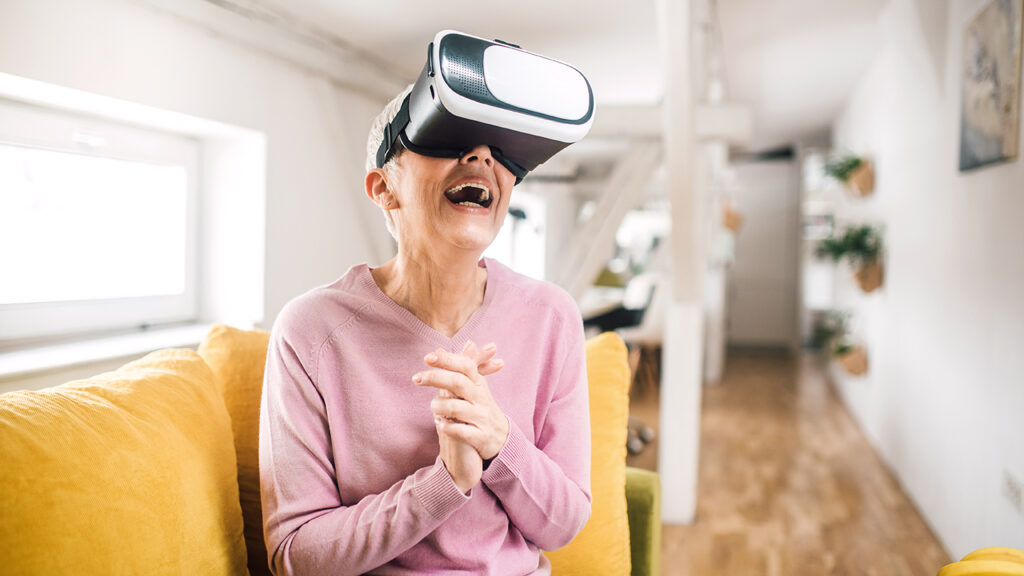
As demand for long-term care grows, innovative solutions such as virtual reality are quickly becoming indispensable in preparing the next generation of caregivers.
A new study examining how VR can aid in “experiential learning,” or learning by doing, involved more than 60 medical students specializing in gerontology and long-term care. Half of the participants engaged in specially curated VR content focused on assistive technology, while the other half received only 2D training.
VR participants were taught how to “see” with moderate macular degeneration impairment, to get a sense of what that is like from a patient’s perspective, and to help a virtual senior avatar use assistive tech within a bathroom setting. Study results showed that this hands-on approach proved invaluable in preparing students for real-world caregiving scenarios. Compared to their peers in the 2D learning group, VR participants received significantly higher scores on their post-test.
“VR enables young students to be more active and experience deeper feelings than usual during interactive learning,” study authors wrote. “In the teaching of medical students, VR use can improve learning quality, knowledge and motivation.”
Similar studies have shown that nursing students benefit from VR training to better serve seniors once they graduate; in addition to nursing, VR now is being used in virtually all medical fields, from surgery to radiology, the study authors noted.
The ability to motivate a future cohort of older adult caregivers with assistive technologies is crucial at a time when both the senior population is growing and senior living and care providers are struggling to staff their communities and facilities.
The study was published in the journal BMC Medical Education.





